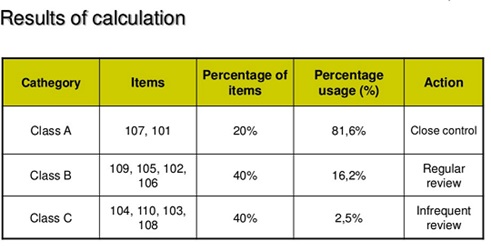
There are basically two methods of recording income and expenses – the cash basis and the accrual basis of accounting. While recording by hand may be the cheapest solution, it can be time-consuming and prone to errors. This is the reason a majority of small business owners either hire accountants to compile financial statements or opt for small business accounting software to ensure efficient recordkeeping. To separate your business’s finances from your personal money, open a separate bank account for your business. This helps you file income taxes accurately as you can deduct business expenses on your tax return. Small business accounting is the process of tracking, recording, and analyzing your company’s financial transactions.
Once you’ve chosen an accountant to work with, use these top questions to ask a CPA to guide your initial conversation. Make sure you’re clear on all of the accounting obligations related to managing and growing your business. The accounting tips for small businesses can help you figure out long-term goals, ride financial ups and downs and increase your profits. Moreover, efficient bookkeeping strategies can help you stay out of trouble with the IRS. This content is for information purposes only and should not be considered legal, accounting, or tax advice, or a substitute for obtaining such advice specific to your business. No assurance is given that the information is comprehensive in its coverage or that it is suitable in dealing with a customer’s particular situation.
Accounting software applications always include a default chart of accounts that you can use immediately. You might choose to work with a virtual bookkeeper if you’re comfortable connecting via Zoom or email. The fees may be lower, but be sure to ask about their fob shipping point – meaning example and more background and experience before you sign a contract for their services. Small businesses that are required to pay estimated quarterly taxes but fail to do so may be assessed a penalty by the IRS.
- With that caveat in mind, here’s a quick overview of the two types—and which type certain businesses are legally required to use.
- And if you send invoices or pay bills with your software, the numbers should sync automatically with your ledger.
- When you start a business, open a separate business bank account that will keep your business finances separate from your personal ones.
- Accounts receivable is the money that other entities owe to your business.
Software and Tools for Small Business Accounting
You’d follow this system for all of the account categories that you have. Common categories include asset, liability, equity, revenue, and expense accounts. Accounting software can be your secret weapon when it comes to managing your small business finances. Work with your CPA to determine how you will meet your sales tax obligations before you do business.
Step 10: Run financial statements
If the courts see that you’ve mixed your finances, they may disregard the protection of the corporate veil. For instance, if your corporation was on the hook for a sum of money, the corporate veil would prevent you from being held personally liable for the debt. It refers to the legal separation that exists between a corporation and its owners. In simpler terms, the corporate veil protects the owners of a corporation (and their personal assets) from any legal action taken against that corporation. Get a breakdown of the cards available to you with the Bench guide to Top 16 Greatest Small Business Credit Cards. Be sure to discuss any prospective CPA’s rates during the consultation.
Step 5: Set up your chart of accounts
Gross margin is the difference between the selling price of your product or service and the cost of goods sold. To calculate gross margin, divide the selling price by the cost of what is collateral in business goods sold. For example, if you sell a product for $100 and it costs $50 to produce it, your gross margin would be 50 percent. Accounts receivable is the money that other entities owe to your business.
A user-friendly option for small business accounting, FreshBooks makes it easy to 2021 sales tax rates track income and expenses and includes a self-employed version just for you. At the end of the month, quarter, or year (or any time in-between), you can generate financial reports from your accounting software. The key is to ensure every transaction is recorded correctly and in the right account. Mobile card readers like Square are handy for taking payments while you’re on the go.
If you’re still not sure what the difference is between a debit or a credit, and couldn’t tell an asset from a liability, accounting software can make your life a lot easier. The IRS encourages small business owners to maintain proper documentation for expenses, such as receipts showing the amount spent, the date, the payment method, and what was purchased. Bookkeeping is an ongoing task which can be performed daily, weekly, or monthly. Whether you do the task yourself or outsource it to a pro, the goal is to make sure your books are accurate, up-to-date, and useful to you and your CPA. Remember, the best accounting solution is the one you’ll consistently use.

Manage business revenue in your checking account, and set aside money you’ll need at a later date (for emergencies, to pay taxes, etc.) in a savings account. Make sure you compare a few options—and take note of requirements such as maintaining a minimum balance—before settling on a bank. According to the NSBA Small Business Taxation Survey, filing and completing their federal income tax returns is one of the top concerns for small business owners. Based on the monthly sales, set aside some money to pay for your taxes. This will help you avoid having to outlay a significant amount of funds at the end of the year.
You can use an accounts receivable aging report for a quick view of outstanding customer payments. The beginning of the month is a good time to send overdue reminder statements to customers, clients, and anyone else who owes you money. While accounting may not be what motivates you to go to work every day, it’s likely something you’ll encounter whether you do it yourself or outsource to an accounting firm. There are weekly, monthly, quarterly, and annual accounting tasks you need to complete to ensure your business’s success. Investing in accounting software can make it easier to automate financial tasks, improve accuracy, compile data, produce reports, and comply with laws and regulations. When deciding on a software, consider which features you need and how much you’re willing to spend.
